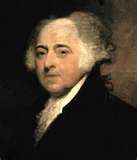There is nothing which can better deserve your patronage than the promotion of science and literature. Knowledge is in every country the surest basis of public happiness...To encourage literature and the arts is a duty which every good citizen owes to his country. – George Washington
A nation that expects to be ignorant and free in a state of civilization…expects what never was and never will be. – Thomas Jefferson
The current public discussion of Ebola quarantines has me
throwing bipartisan shoes at the TV. I don’t want to discuss the political
posturing, which is bad enough but expected.
I want to hone in on the sad state of our general education
and the absence of critical thinking. Founders Washington and Jefferson warned
us and gave us sage advice, which we seem to be ignoring at our peril.
OK, what right do I have to be spouting off about Ebola,
science, education, and critical thinking? Here are a few bio tidbits:
 |
| Rebecca the Science Teacher |
- Trained as biochemical geneticist
- Medical researcher
- Taught biological and physical sciences for ten years in high school and college
- Consult to a county STEM board (supports programs in Science Technology, Engineering and Math)
- Board member, GeekiGirls (supports girls' interest in STEM and the Arts, STEAM)
- Foreign Member, St. Petersburg Engineering Academy.
Let's take a quick
look at Ebola and the missing critical thinking here in the U.S. Ebola is a
devastating disease we mostly ignored here until it entered big cities and
spread quickly in three West African countries. Volunteers from around the
world have gone to these countries to contribute their skills to fragile and
collapsing health systems there. They are working in very primitive conditions
in places where electricity and potable and running water are not the norm and local
practices exacerbate the spread of the disease.
Fact 1: People only spread the virus by direct contact with bodily fluids, most commonly diarrhea, blood, and vomit.
Fact 2: When people
have no symptoms they cannot spread the virus.
Fact 3: The
incubation period is 21 days in humans.
Fact 4: The Centers
for Disease Control have issued new guidelines based on the degrees of exposure
to people with the virus and supported by international health groups.
The hysterical moves
by the governors of New York and New Jersey, other states, and the U.S.
military to quarantine everyone returning from work in the region ignores the
facts, ignores the science, ignores the advice of medical experts, and ignores
critical thinking.
Listening to TV
reporters, news readers, and "hosts" stir the pot of fear and misinformation is
more than inane, it is dangerous. The rampant speculation, ignorant questions
and comments, and refusal to listen to science are scary. The fact that people fall
for it points to what many studies show; the dire state of science and critical
thinking education in this country is a threat to democracy. Even the college-educated
reporters and commentators demonstrate a lack of scientific understanding and
thinking a 7th grader should have mastered.
This is nothing new.
When the Russians launched Sputnik and caught the U.S. flatfooted, there were
no other girls in my physics and advanced math classes and many college-bound boys
avoided these hard classes. Government created the National Defense Education
Act and the National Science Foundation created four new science curricula. I
went through graduate school with an NDEA loan, which I repaid by teaching,
including the new science curricula.
I have a couple of
suggestions:
- Create modern programs, similar to the post-Sputnik ones, to assure every student, in every school, gets grounding in real science and critical thinking. Emphasize teaching elementary and middle school teachers to teach the understanding, application, and love of science. Science must be learned hands on with experiments and investigation. We must teach everyone to think critically.
- Governors and other officials, it's time to admit you reacted and did not base your moves on science nor think critically about the situation. George Washington said it best,"To err is nature, to rectify error is glory."
- Reinstate literature, the arts, science, and social science as the centerpieces of K-12 education. A recent study confirmed music study increases other intellectual capacities. In an era when schools routinely cut all the arts education in favor of drilling for standardized tests, real education is sacrificed.
Food for thought...yes, thought.
Learn the basic skills of critical thinking. Join me for
a technique-packed webinar and white paper access. http://tinyurl.com/lw8oxgl
* * *
* * *
(c) Rebecca Staton-Reinstein and Advantage Leadership, Inc.














